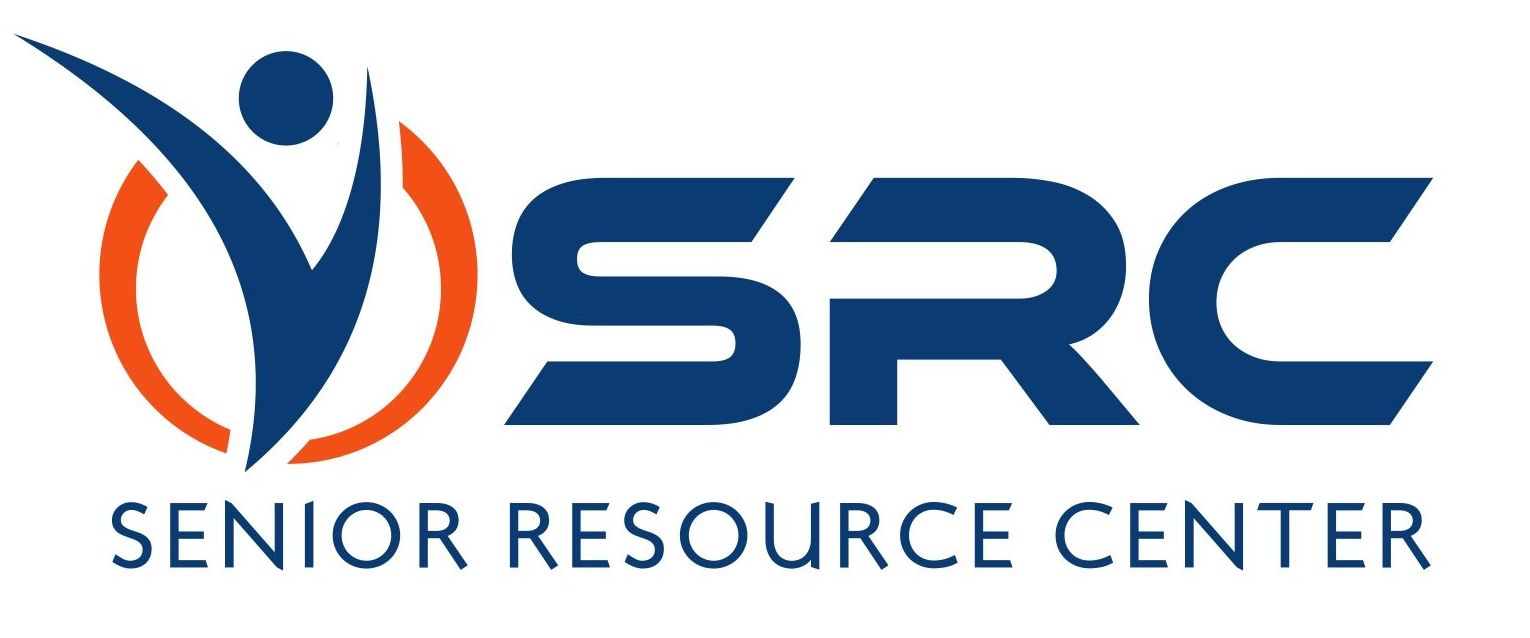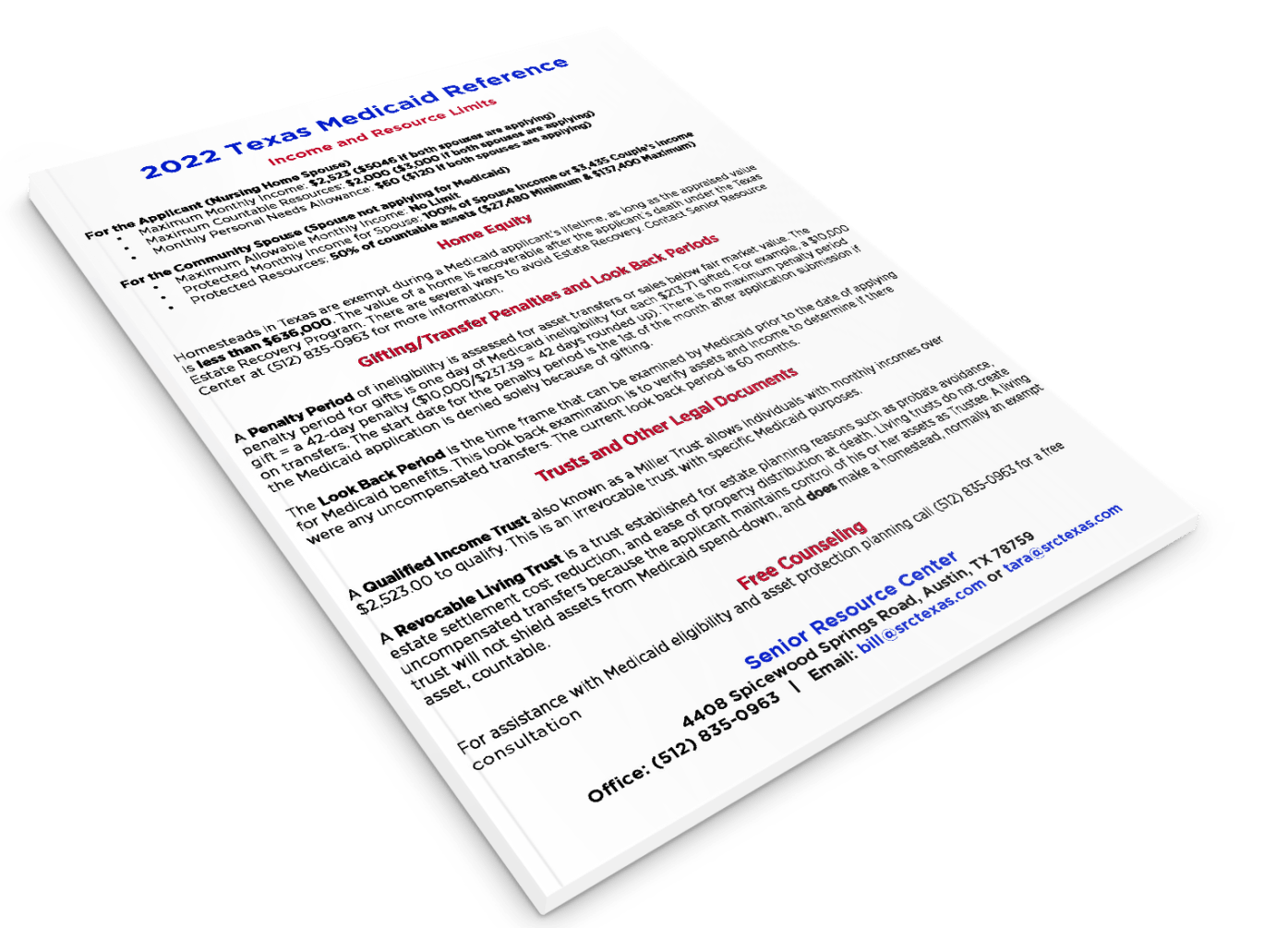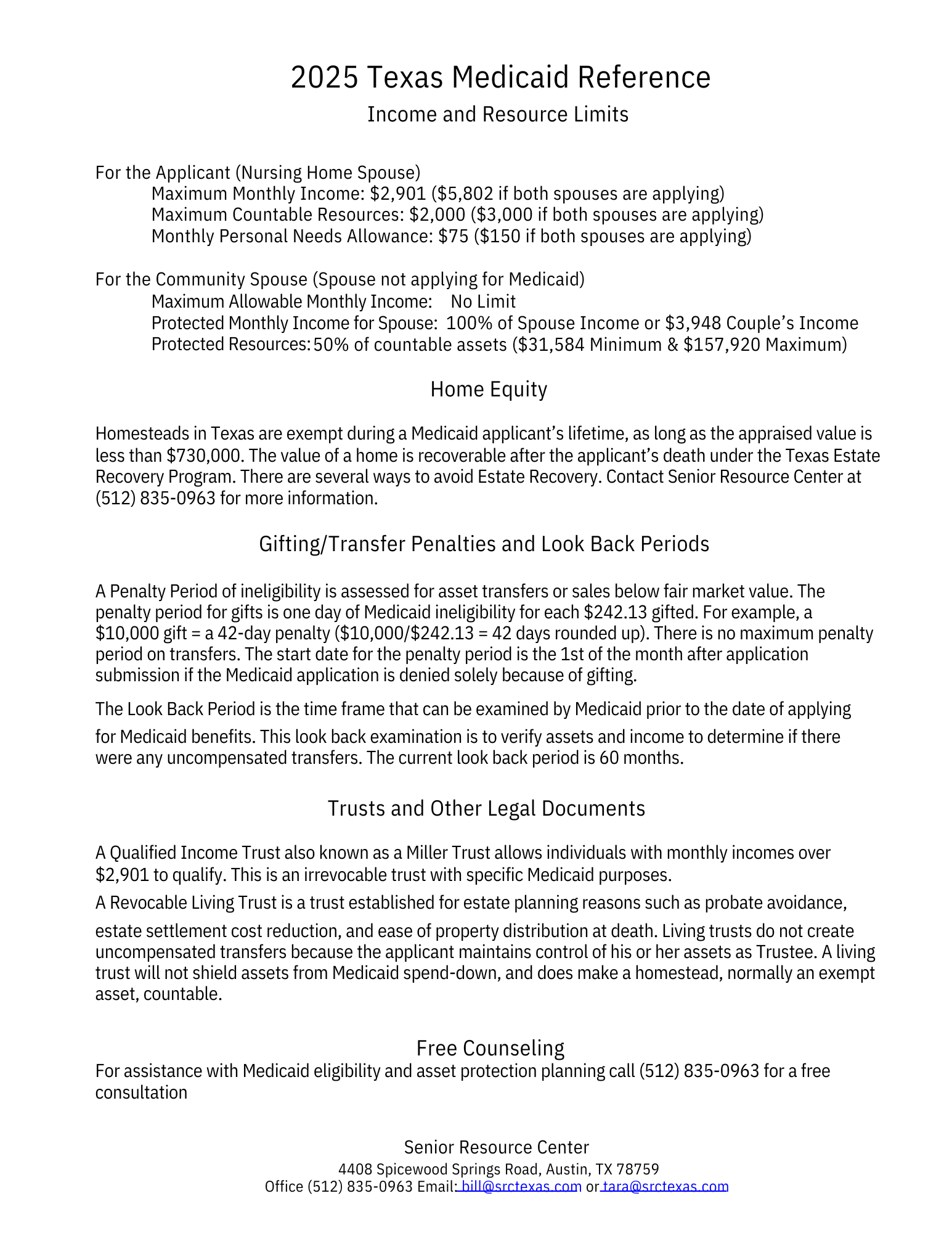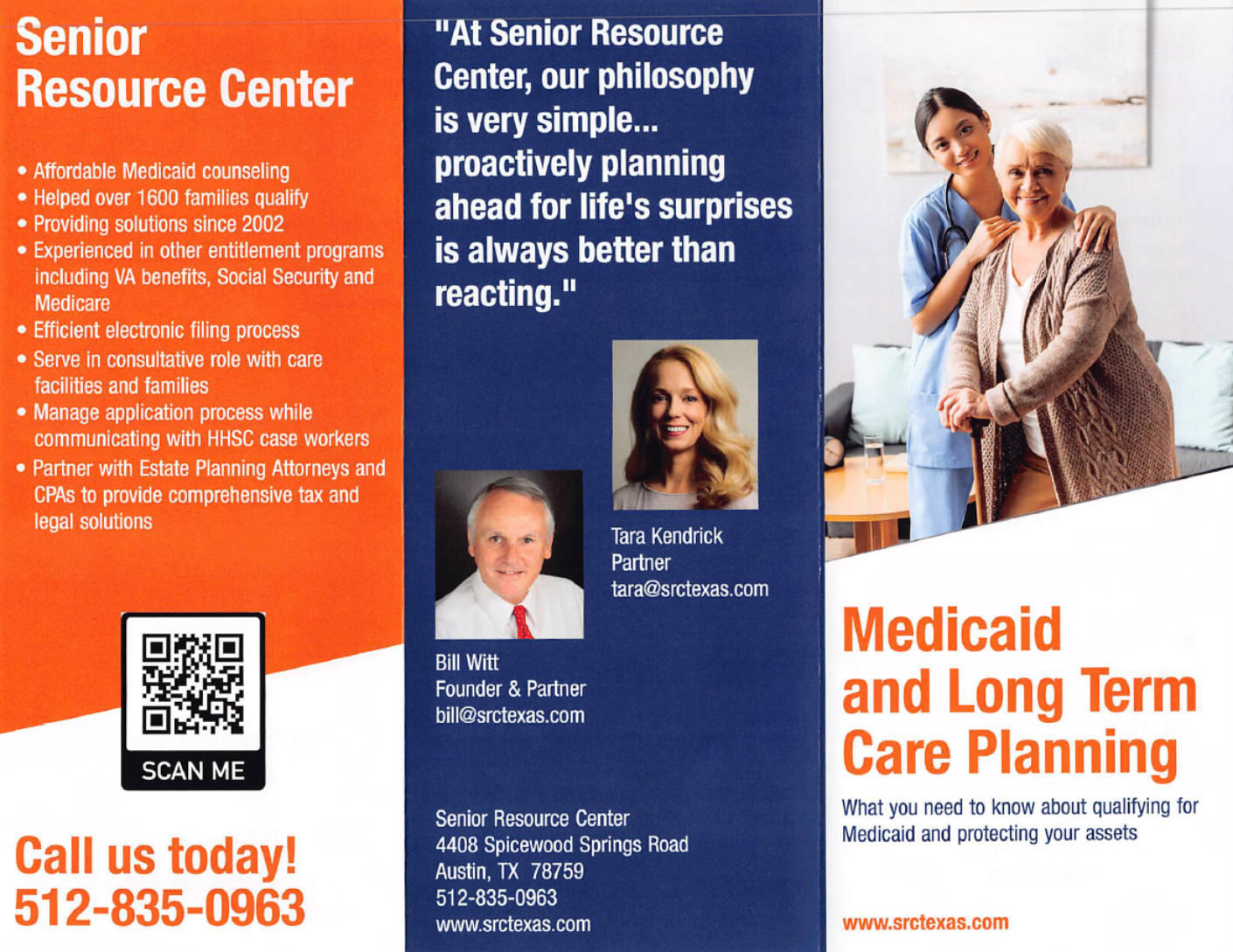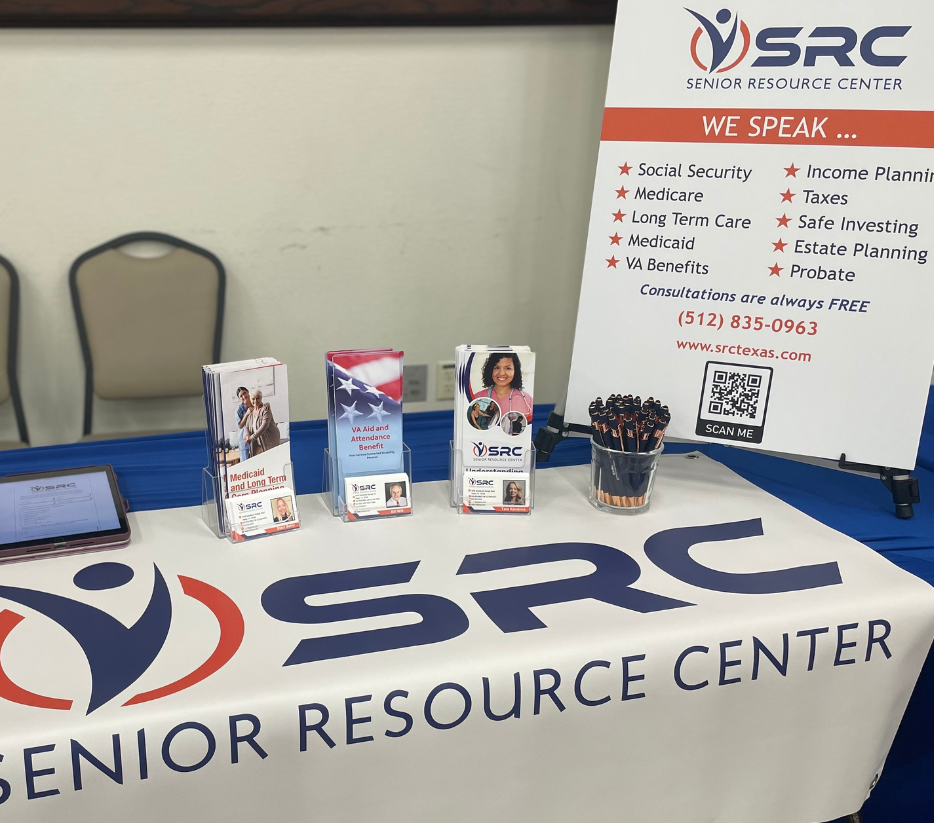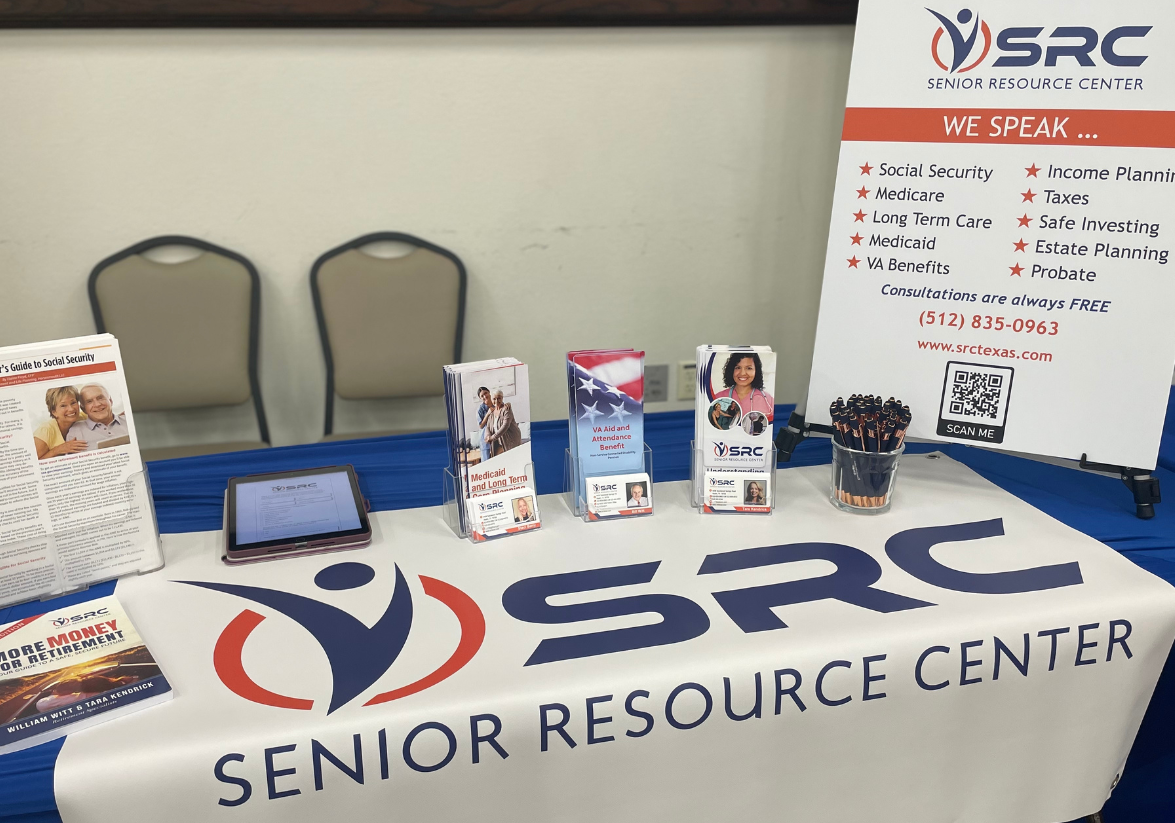Medicaid
Paying for Nursing Home Care

Nursing Homes can be the most expensive place to receive Long Term Care. With proper planning, couples can protect everything they own and qualify one spouse in a Nursing Home for Medicaid benefits. Single people can protect most or all of what they have and qualify for benefits. We guide families through the process, developing a plan, protecting assets, filing appropriate paperwork and managing the case through approval.
Medicaid Myths
"You have to be broke.” – This is the biggest myth. Couples can protect everything they own and qualify one spouse for benefits. Single people can protect most or all of what they have. We’ll show you how.
“My income is too high to qualify.” – Income never prevents eligibility. It just takes an extra step, setting up a trust account to become eligible. We’ll help you set it up.
“The quality of Medicaid care is poor.” – This used to be true, but because Nursing Homes must maintain a large Liability Policy, today private pay and Medicaid residents are treated and cared for equally.
"I can gift my assets and get benefits.” – Gifting assets within the previous 5 years always creates a penalty period, when you are not eligible. We show clients the right and wrong ways to gift, and when and how to use gifting to preserve assets.
“You will lose your home.”
– Texas exempts home value when you apply for Medicaid but attempts to recover what it spent on care after the Medicaid applicant dies. We show families multiple ways to shield a home from Medicaid Estate Recovery including using a Special Warranty Deed.

Medicaid Eligibility
There are four eligibility requirements to receive Medicaid benefits.
Medicaid Bed
The Nursing Home resident must be in a Medicaid Bed. This is not a special brand of bed. It’s a bed that’s contracted with the State of Texas to receive Medicaid payments. Most Nursing Homes in Texas accept Medicaid, but not all of their beds are Medicaid contracted. We will help you find a Medicaid bed.
Medical Necessity
Medicaid applicants must need a certain level of care, with either Physical or Cognitive Impairment. Physical Impairment means you need the full-time services from a licensed practitioner to perform 2 of 6 Activities of Daily Living (ADLs), including Eating, Dressing, Bathing, Transference (i.e., moving from a bed to a chair), Toileting, and Incontinence (wearing diapers). Cognitive Impairment means needing 24x7 supervision in a protected environment and help with Medicine Management. Your Nursing Home will complete the Medical assessment.
Income
There is an income limit to qualify for Medicaid benefits in a nursing home, $2,901 gross monthly applicant income in 2025. Fortunately, there is a Waiver available so people of any income level can qualify. By setting up a Qualified Income Trust (QIT), you can qualify for Medicaid. We help families understand, set-up, and operate a QIT.
Assets
This is the most confusing part of Medicaid planning, and where we help the most. The State of Texas divides assets: Exempt and Countable. Exempt assets include your Home, one Vehicle, Burial Programs (if they are Irrevocable) and Business Interests (if you file a business tax return). Everything else is Countable, including Bank Accounts and CDs, Brokerage Accounts, IRA and 401k accounts, Cash Value Life Insurance, Mineral Rights, additional Vehicles, Homes and Land, etc. Our goal is to protect all or most of your Countable Assets. If you are married, the State of Texas divides Countable assets between spouses. The spouse not in the Nursing Home (community spouse) can protect all of their income and their portion of the divided Countable Assets, known as the Protected Resource Amount (PRA). We help protect ALL of the Countable assets in the Nursing Home spouse’s bucket. If you are single, there are multiple strategies to protect most or all of your Countable Assets.
